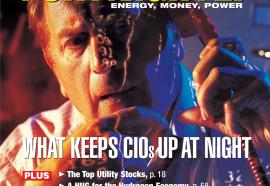Basic Instinct
If private equity makes a killing, Congress should require full disclosure.
There’s just no stopping it. The capital amassed by private takeover firms is simply overwhelming. Any reasonable person could conclude that public utilities face wholesale changes in terms of corporate ownership. Investor-owed? You bet. But the “public” part may well give way to “private.”










